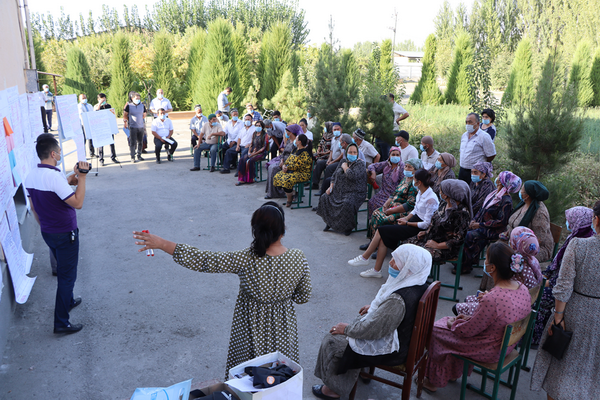
Self-government of citizens: the experience of Uzbekistan on the example of the project "Development of rural infrastructure"
Tashkent, Uzbekistan (UzDaily.com) -- Community-based development is the process of making communities more resilient and efficient so that they can participate more fully in society and the economy.
Community development projects involve processes in which community members come together to take collective action and find solutions to common problems. This is a broad concept applied to build stronger and more resilient local communities.
Large-scale projects are being carried out in our country in order to identify priority areas for reforms that further improve the well-being of the people, the unconditional provision of human rights and interests, the formation of an active civil society in subsequent years based on the principle "In the name of the honor and dignity of man."
The first project in Uzbekistan, the main principle of which is the development of the state at the community level, is the Rural Infrastructure Development project under the Ministry of Economic Development and Poverty Reduction.
The salient aspects of the project are as follows:
- serving to increase the participation of citizens in the management of the state and society;
- introduction of local development processes from the bottom up;
- contributing to poverty reduction by improving basic infrastructure;
- ensuring that participatory processes are organized in an efficient manner compared to conventional approaches.
The use of leading foreign practices involves the involvement of rural facilitators to work with the population. The tasks of rural facilitators are to contribute to building the capacity of residents of remote areas of the republic, as well as teaching them management skills. All these actions are aimed at developing managerial qualities among the population, which will further strengthen their financial independence in order to solve the socio-economic problems of the territories directly on the spot.
Currently, within the framework of the Rural Infrastructure Development project, about 176 villages have already submitted a plan for the development of local social infrastructure facilities. They will receive funding for the construction and reconstruction of water and electricity systems, roads and bridges, schools and other public buildings most in demand in these communities.
Noting the achievements of the Rural Infrastructure Development Project, it is worth noting the continuous improvement of the project implementation cycles based on the recommendations of international experts and adopting the best foreign experience in building the capacity of local self-government participants.
So, in order to get acquainted with the interim results of the project, in September of this year, the Vice President of the World Bank for Europe and Central Asia, Anna Bjerde, visited Bakhmal district of Jizzakh region, where a school building for 220 places was reconstructed as part of the project. During the meeting with Ms. Bjerde, the villagers and representatives of the MEDR spoke about the experience of developing and implementing this subproject.
She met with the teaching staff and students of the school. Ms. Bjerde also spoke with local women entrepreneurs to learn about their business activities, as well as opportunities and barriers for the development of micro and small businesses in the region with the participation of women.